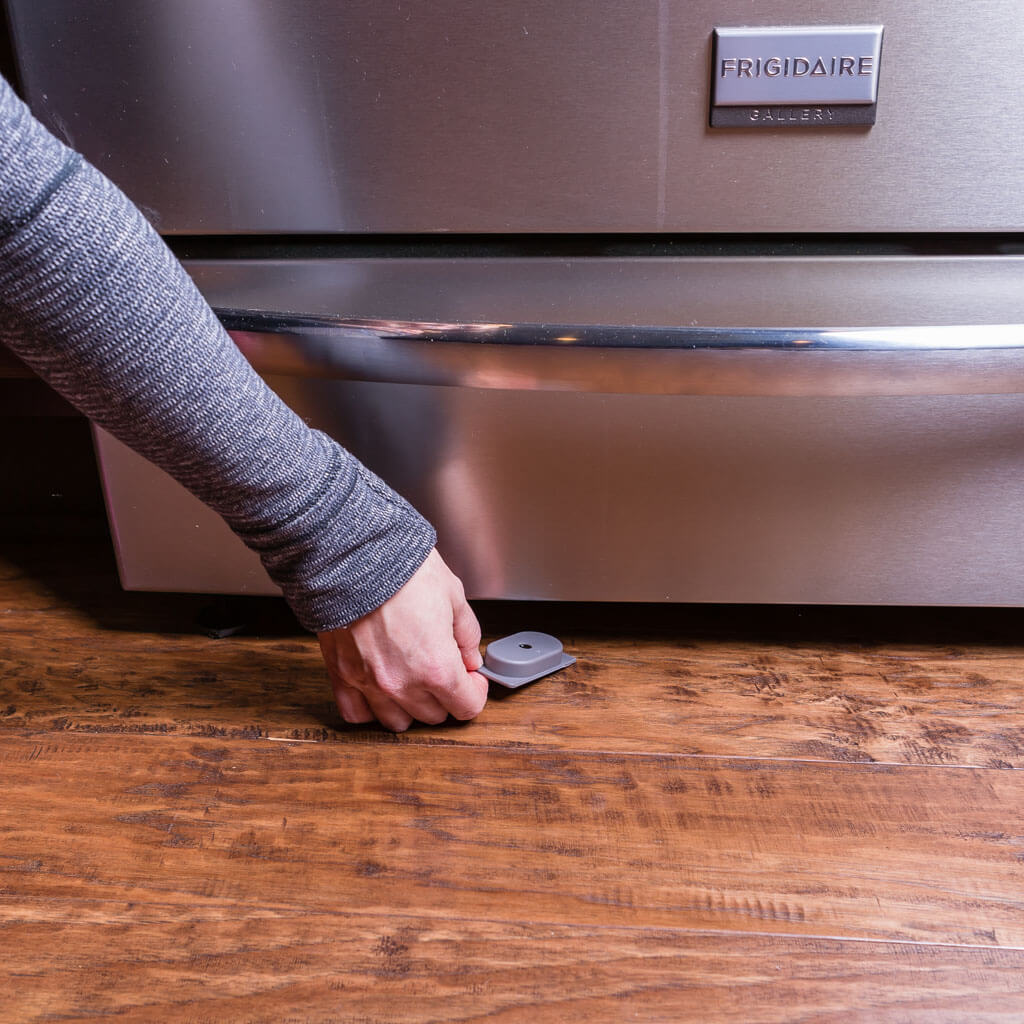If you’re living off the grid, you know that chemical-free pest control is a must.
But when it comes to ant infestations, it can be tough to figure out how to get rid of them without using harsh chemicals.
Fortunately, there are plenty of natural and effective ways to keep ants at bay without compromising your commitment to living off the grid.
From DIY home remedies to eco-friendly ant repellents, we’ve got you covered with everything you need to know about getting rid of ants without using chemicals.
Seal all food and sugar containers
Ants are attracted to sweet and sticky substances, so make sure to seal all food and sugar containers tightly.
Ants are drawn to sweet and sticky substances, so they’ll quickly sniff out any unsealed food or sugar containers and make them their next meal.
To prevent this from happening, make sure to securely cover all food and sugar containers with tight-fitting lids or wrap them thoroughly in plastic wrap or aluminum foil.
This will help to block the ants’ scent receptors and prevent them from detecting the delicious treats inside.
Store these containers in a cool, dry place to further discourage the ants’ advances.
By taking these simple steps, you can help to keep your kitchen free of unwanted ant guests and your food supplies safe from their hungry mandibles.
Keep your kitchen and dining areas clean
Wipe down your kitchen and dining areas with soap and water regularly to prevent ants from finding food.
Regularly wiping down your kitchen and dining areas with soap and water is a important step in preventing ants from finding food and infesting your home.
Ants are attracted to sweet and sticky substances, so it’s important to remove any spills or crumbs promptly.
Wipe down your countertops, sinks, and stove with soap and water after each meal, and thoroughly clean your dining table and chairs at the end of each day.
Be sure to sweep and mop your floors regularly to remove any crumbs or debris that may have fallen on the ground.
By keeping your kitchen and dining areas clean and free of food residue, you’ll be taking away a important food source for ants and reducing the likelihood of an infestation.
Use natural repellents
Ants don’t like the smell of certain herbs and spices, such as cinnamon, cloves, and mint. Place these herbs near entry points or ant trails to repel ants.
One of the most effective and eco-friendly ways to repel ants is to use natural repellents.
Certain herbs and spices, such as cinnamon, cloves, and mint, are known to be unappealing to ants.
By placing these herbs near entry points or ant trails, you can effectively repel ants and prevent them from entering your home or garden.
For example, you can sprinkle cinnamon powder along the edges of your garden beds or near entry points to your home, such as windowsills or doorways.
This will create a barrier that ants will find unpleasant and avoid.
Similarly, you can place mint leaves or cloves near ant trails to deter ants from following their usual paths.
Not only are these natural repellents non-toxic and environmentally friendly, but they are also a cost-effective solution to your ant problems.
So, consider using cinnamon, cloves, and mint to keep ants at bay and keep your home and garden ant-free.
Eliminate standing water
Ants need water to survive, so eliminate standing water in and around your home. Fix any leaks, and make sure your sink and shower drains are properly installed.
To prevent ants from entering your home, it is essential to eliminate standing water in and around your home.
Ants need water to survive, so if there is standing water present, it will attract them to your home.
Standing water can be found in various areas such as sink drains, shower drains, pet water dishes, and flower vases.
Therefore, it is important to fix any leaks, and make sure your sink and shower drains are properly installed to prevent water from accumulating.
You should check your home’s exterior for any areas where water may be collecting, such as clogged gutters, downspouts, and pooling water around foundation walls.
By addressing these issues, you can help prevent ants from finding a source of water near your home, which will discourage them from entering your home.
It is also important to regularly check for and eliminate any standing water in your home, such as in the bathroom or kitchen, to prevent ant infestations.
Use diatomaceous earth
Diatomaceous earth is a natural substance that is made up of the fossilized remains of tiny aquatic organisms. It can be used to kill ants by dehydrating them. Sprinkle it around entry points and ant trails.
If you’re looking to eliminate ants from your home or garden, consider using diatomaceous earth.
This natural substance is made up of the fossilized remains of tiny aquatic organisms, and it can be a highly effective ant killer.
By sprinkling it around entry points and ant trails, you can dehydrate and kill ants, as well as prevent new ones from entering your space.
Diatomaceous earth works by scratching the exoskeleton of the ants, causing them to lose moisture and eventually die.
Plus, it’s a non-toxic and environmentally friendly solution that is safe to use around pets and children.
So, if you’re tired of dealing with unwanted ants, give diatomaceous earth a try.
It may just become your new go-to ant solution.
Use essential oils
Certain essential oils, such as peppermint and tea tree oil, can be used to repel ants. Mix a few drops of the oil with water and spray it around entry points and ant trails.
Using essential oils is a natural and effective way to repel ants.
Peppermint oil and tea tree oil are two of the most popular options for this purpose.
To use these oils, simply mix a few drops with water in a spray bottle.
Then, spray the solution around entry points and ant trails.
The peppermint oil will repel ants due to its strong scent, while the tea tree oil will kill any existing ants on contact.
The combination of these two oils creates a powerful barrier that will keep ants away from your home and belongings.
When using essential oils to repel ants, it’s important to note that the effectiveness may vary depending on the type of ants and the severity of the infestation.
For example, if you have a severe infestation of carpenter ants, you may need to use a more potent solution or combine the essential oils with other methods, such as bait traps or insecticides.
It’s important to test the solution on a small area first to ensure that it doesn’t damage any surfaces or materials.
With proper use and precautions, essential oils can be a valuable addition to your ant repellent arsenal.
Use baking soda
Baking soda can be used to kill ants by dehydrating them. Sprinkle it around entry points and ant trails.
To eliminate ants using baking soda, sprinkle the powder around entry points and ant trails.
Baking soda works by dehydrating ants, causing them to die from lack of moisture.
This method is especially effective for killing ants that have entered your home through small cracks and crevices.
Simply sprinkle baking soda liberally around the areas where ants have been spotted, paying special attention to entry points and ant trails.
As the ants come into contact with the baking soda, they will ingest it and the dehydrating effects will begin.
Within a few days, you should start to see a noticeable reduction in the ant population.
It’s important to note that baking soda is not a quick fix and may take some time to completely eliminate the ants.
However, it is a non-toxic and eco-friendly solution that can be used safely around pets and children.
It can be used in conjunction with other methods, such as boric acid or diatomaceous earth, for even more effective results.
Use borax
Borax is a natural insecticide that can be used to kill ants. Sprinkle it around entry points and ant trails, but be careful not to ingest it or get it on your skin.
When it comes to natural insecticides, borax is an effective and non-toxic option for eliminating ant infestations.
To use borax, first identify the entry points and ant trails in your home or garden.
Then, sprinkle borax powder along these areas, making sure to cover all the spots where ants have been seen.
It’s important to note that borax can be harmful if ingested or gets on your skin, so be sure to wear protective clothing and avoid inhaling the powder.
After applying the borax, wait a few days to see if the ants have been eliminated.
If the infestation persists, you may need to repeat the treatment.
Keep in mind that borax is not a permanent solution and may need to be reapplied periodically to maintain ant-free surfaces.
Want More? Dive Deeper Here!
Hey there! If you’re the type who loves going down the rabbit hole of information (like we do), you’re in the right spot. We’ve pulled together some cool reads and resources that dive a bit deeper into the stuff we chat about on our site. Whether you’re just killing time or super into the topic, these picks might just be what you’re looking for. Happy reading!






